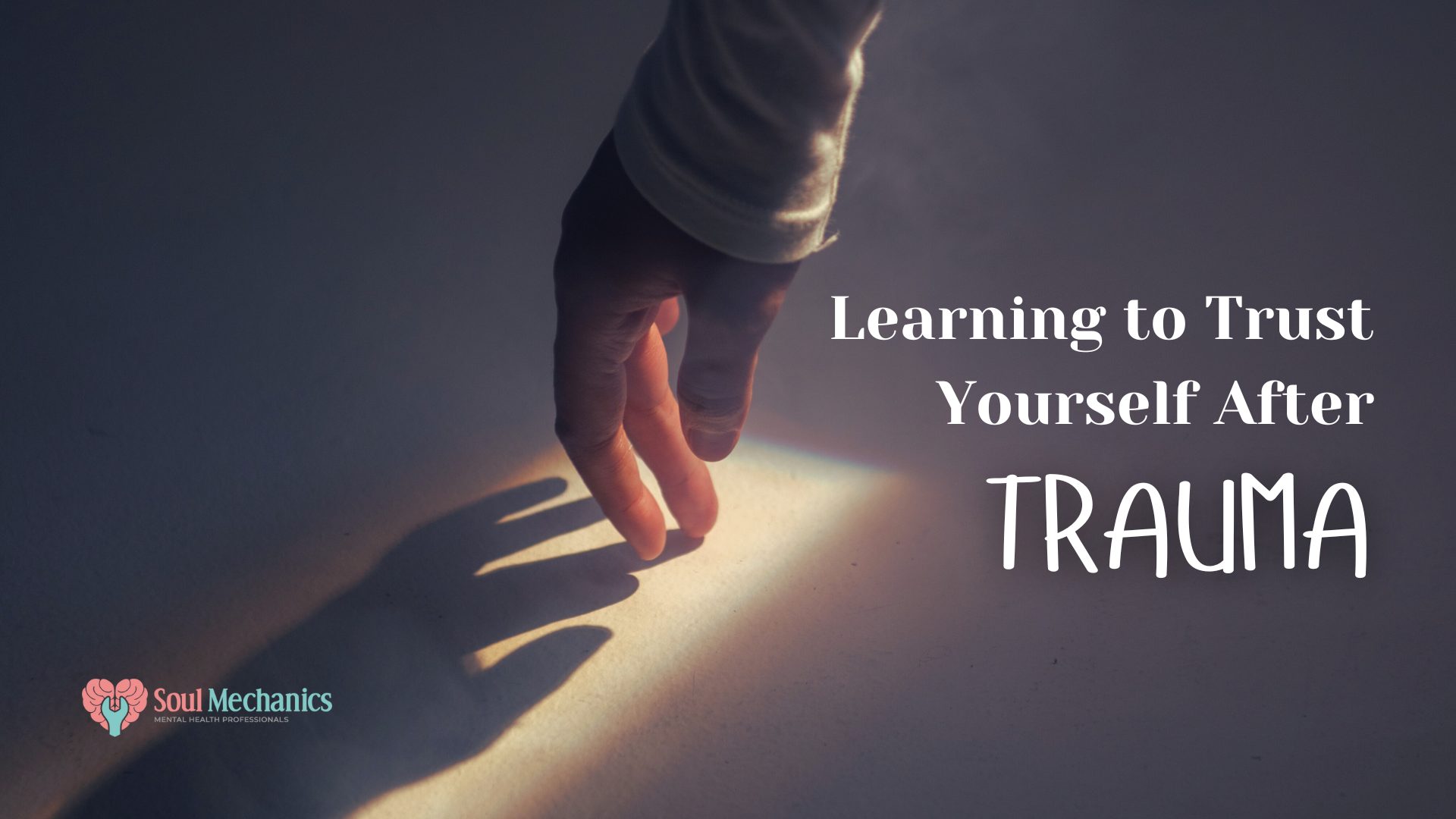Learning to Trust Yourself After Trauma
Learning to Trust Yourself After Trauma

Written By: Shaundtrya Ganasan, Licensed Counselor (KB11097)
Trauma
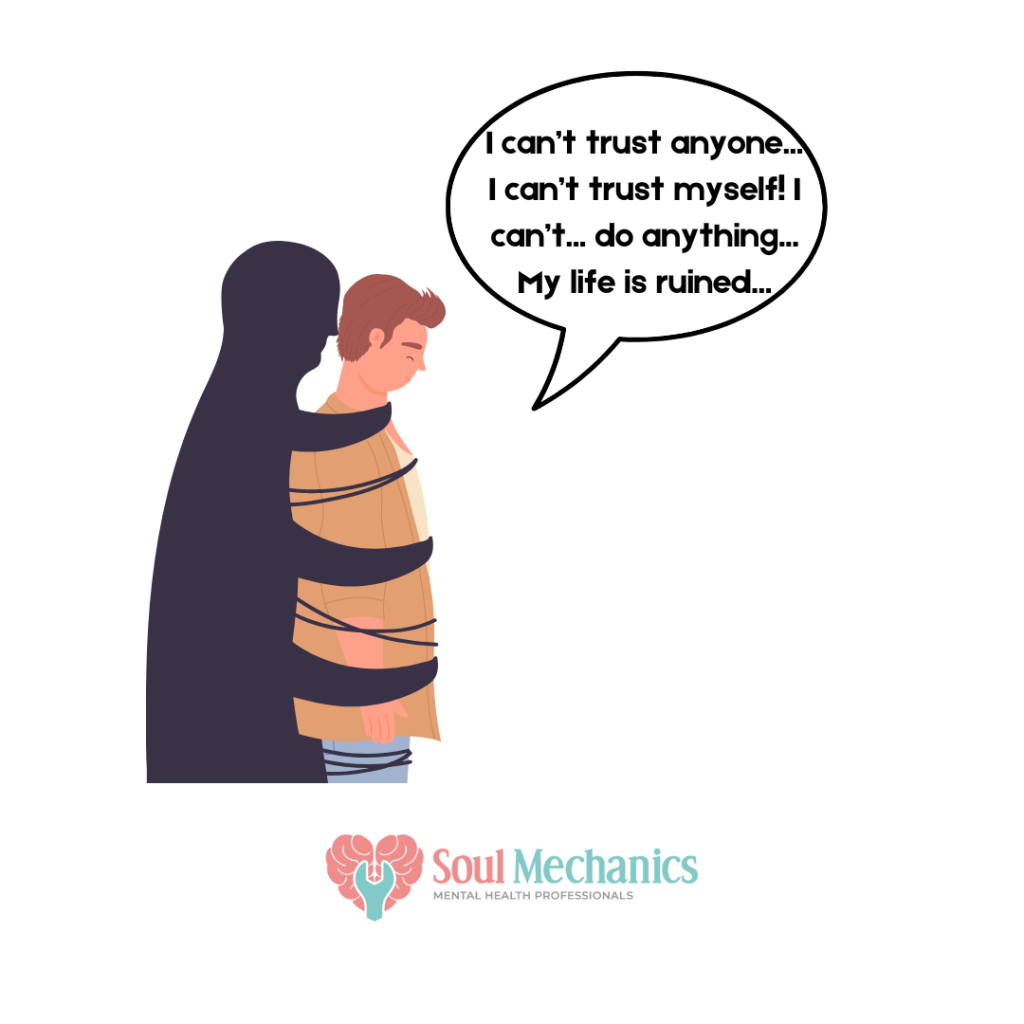
Trauma can leave you with an imprint that could ripple through every corner of your life, from your emotional landscape to relationships. Each individual’s experience of trauma can be different, moulded by factors like coping, resilience and the support they receive. While each person’s healing path appears to be different, some common after-effects tend to rise. Below are the common after-effects that one may experience due to trauma:
Emotional Turmoil
Trauma often triggers storms of emotions - fear, shame, anger, guilt and so on that seem to be almost impossible to ride out. These feelings can be overwhelming, it may also linger longer after the traumatic incident; impacting your daily life in ways that you may not have anticipated it to be.
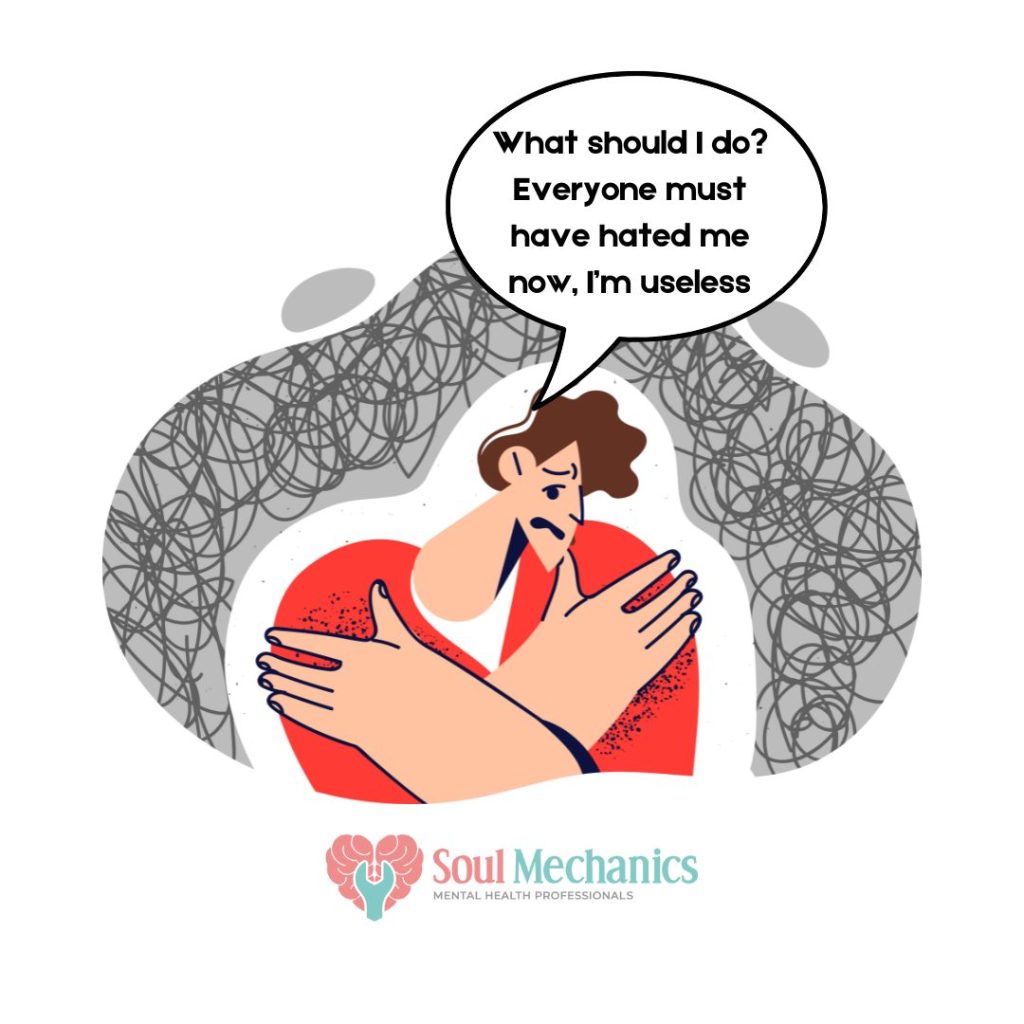
Reminder: If you or your loved ones are struggling with mental health issues, please don't hesitate to reach out to us at Soul Mechanics KD or Soul Mechanics Ipoh. Remember, seeking help is not a sign of weakness but strength!
Flashbacks & Intrusive Thoughts
Trauma memories can intrude you during the most unexpected and inconvenient moments, forcing you to relive the past pain through nightmares, flashbacks, or intrusive thoughts. They often disrupt your peace; making it harder for you to stay grounded or be in the present.
Avoidance & Emotional Numbing
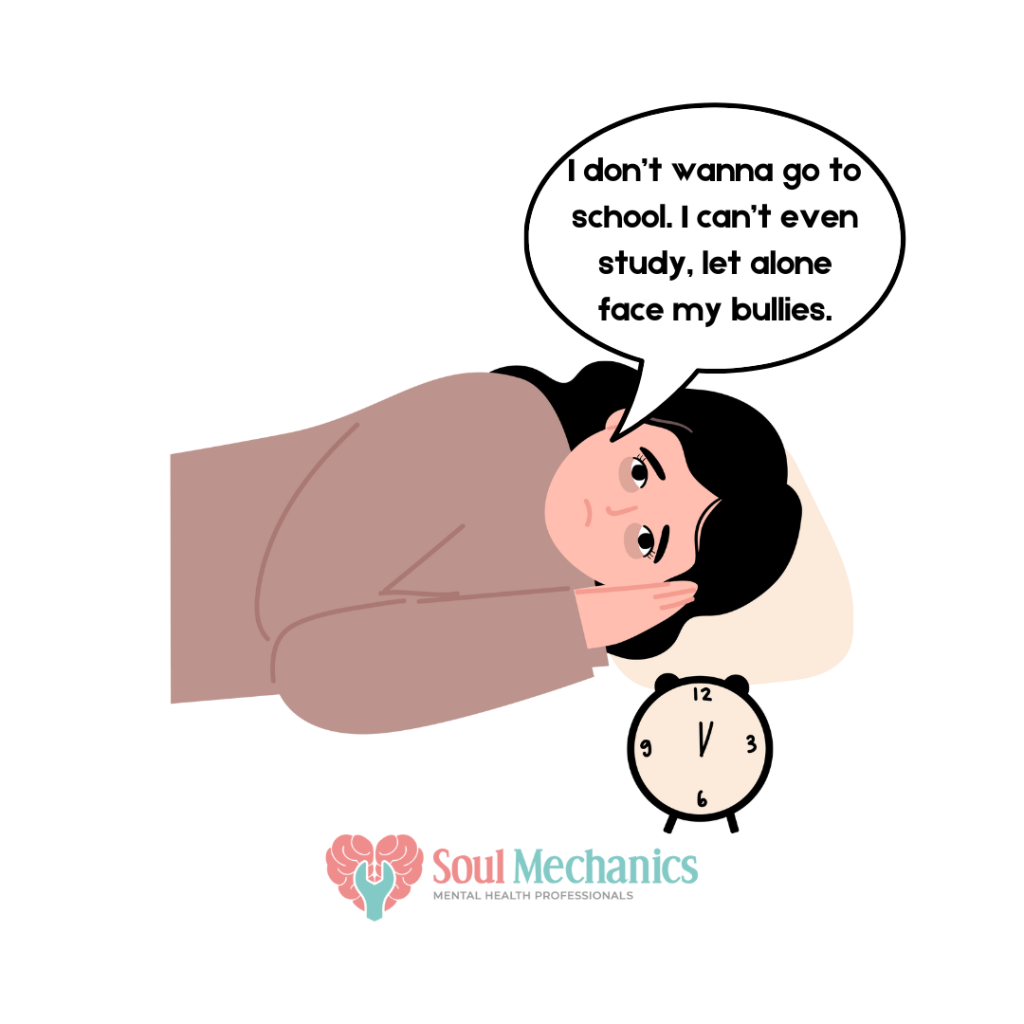
As an effort to avoid anything that may trigger your painful memories, sometimes it is common for you to sidestep some people, places, or conversations. This avoidance can provide you with a sense of protection, but it also keeps you in the loop of suppressed, locked trauma; preventing healing from taking place.
On High Alert
Trauma can heighten your sense of danger which often causes you to stay in a constant cycle of hypervigilance. You may also notice yourself constantly scanning your surroundings, ready for possible threats that may never come. This heightened alertness can make you feel relaxed in a faraway memory.
Shifted Thoughts & Mood
Trauma also makes your internal world to be drastically altered. Persistent unhealthy, negative thoughts about others or yourself can surface due to trauma, leading you to feel detached from your loved ones or temporarily disconnected from things you once found enjoyable.

Physical Repercussions
Trauma doesn’t only affect your mind but also shows up in your body. It often manifests itself as fatigue, stomach aches, sleep disturbances or headaches. This physical toll is a reminder that your body is holding onto stress despite your mind trying to move on.
Coping Harmful Ways
Overwhelming trauma can turn some into utilizing substances or self-harming to numb the pain traumas have stirred within them. Although these copings provide them with temporary relief, they create more harm; further reinforcing a sense of despair and helplessness.
Reminder: If you or your loved ones are struggling with mental health issues, please don't hesitate to reach out to us at Soul Mechanics KD or Soul Mechanics Ipoh. Remember, seeking help is not a sign of weakness but strength!
Identity & Worldview Shifts
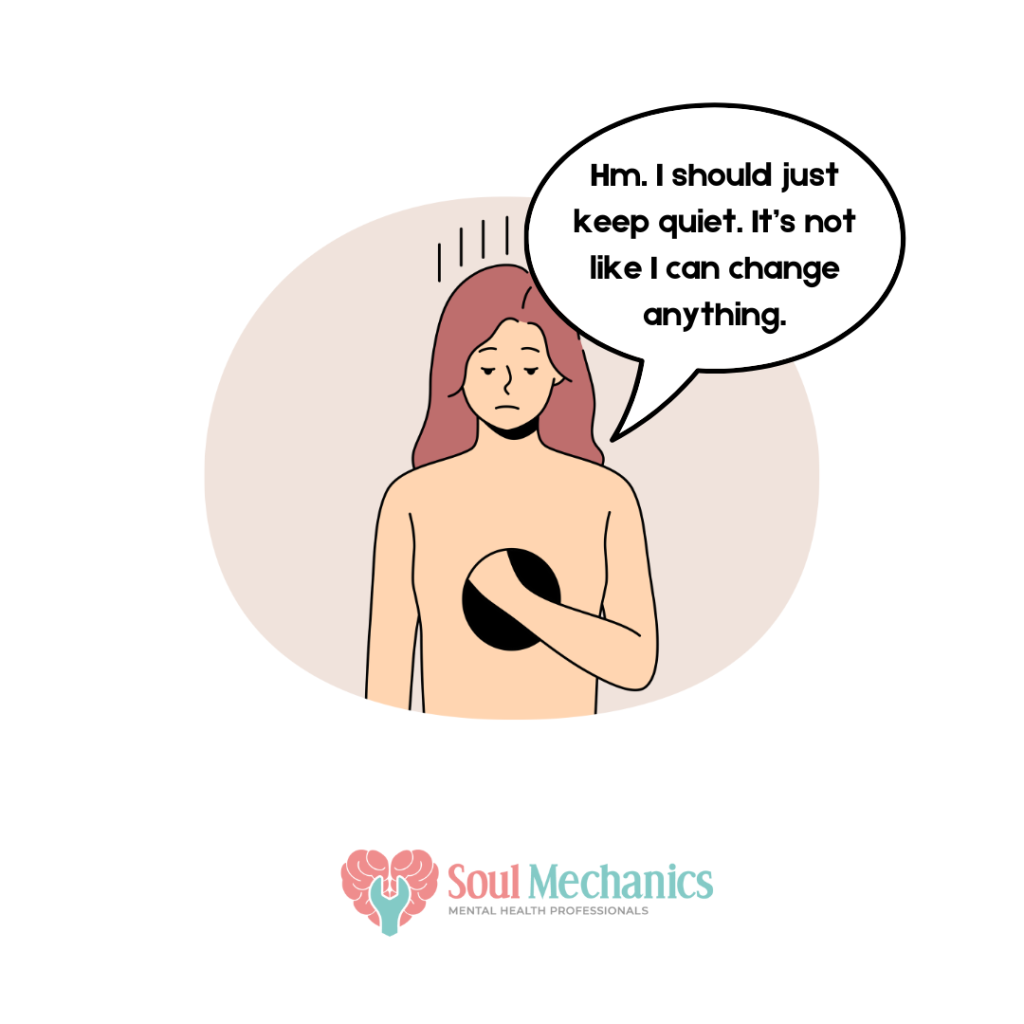
One of the deepest impacts of trauma is shaking your sense of self. It can disrupt your beliefs about who you are, your values, and your purpose. It also makes you question your identity foundation, creating a sense of dilemma and overthinking.
Struggling in Relationships
Trauma is like an invisible wall that separates you from your loved ones. Trust often feels fragile, and communication gets strained, as trauma grapples you with feelings of doubt and insecurity.
Despite all these challenges you go through due to trauma, healing is possible. With the right support like therapy, self-care or talking with loved ones, you can navigate your healing process; finding stability and regaining your sense of self.
Learning to Trust Again
Learning to trust yourself again after a traumatic experience can be tough but the most essential part of your healing journey. Below are some strategies that may help you in this journey:
Acknowledge Your Experience
Start by acknowledging the impact and influence of your trauma on your self-confidence and sense of trust in yourself and others. Gradually learn to be compassionate and understanding with yourself that it is okay to struggle with trust after trauma as you navigate through your healing.
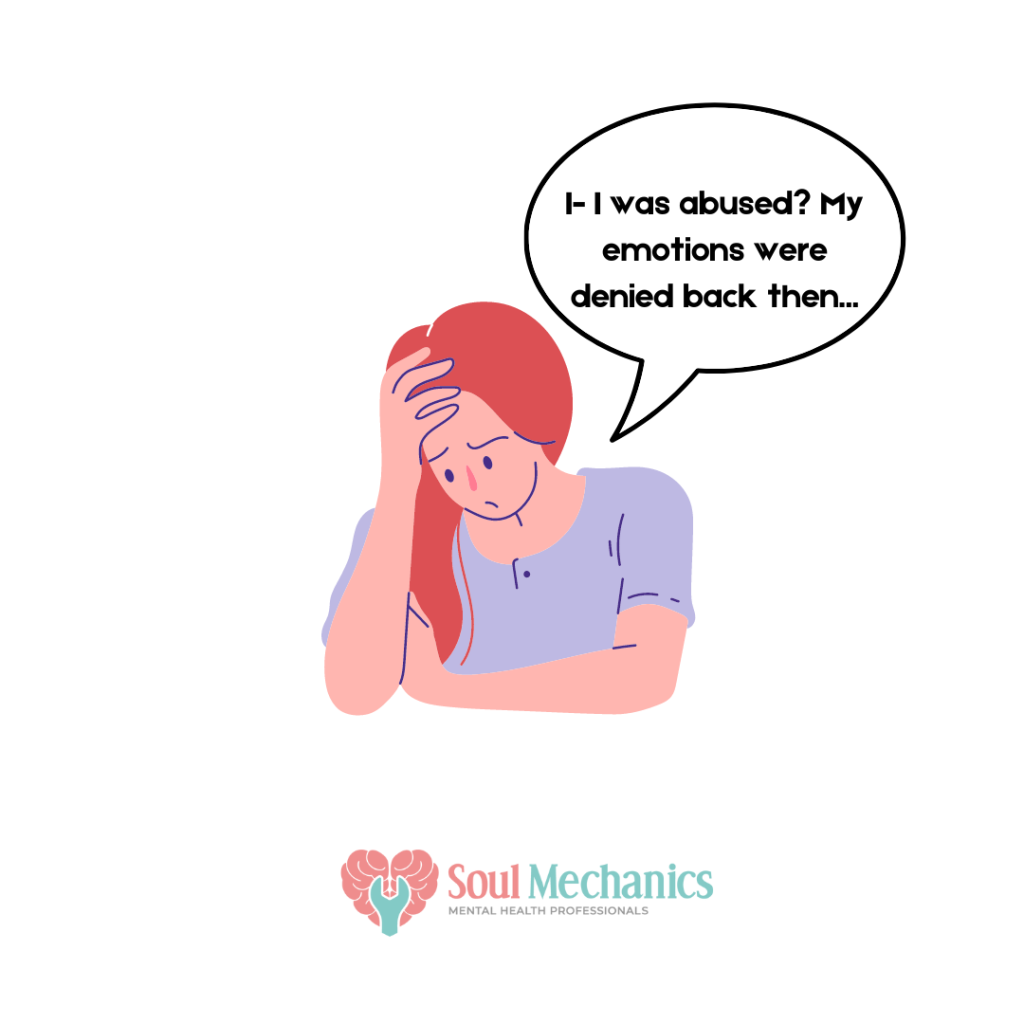
Seek Professional Support
Consider seeking assistance from a professional therapist who specializes in trauma work. A therapist would provide you with an empathetic space to address and process your trauma, in the process of rebuilding a sense of trust in yourself.
Practice Self-Compassion
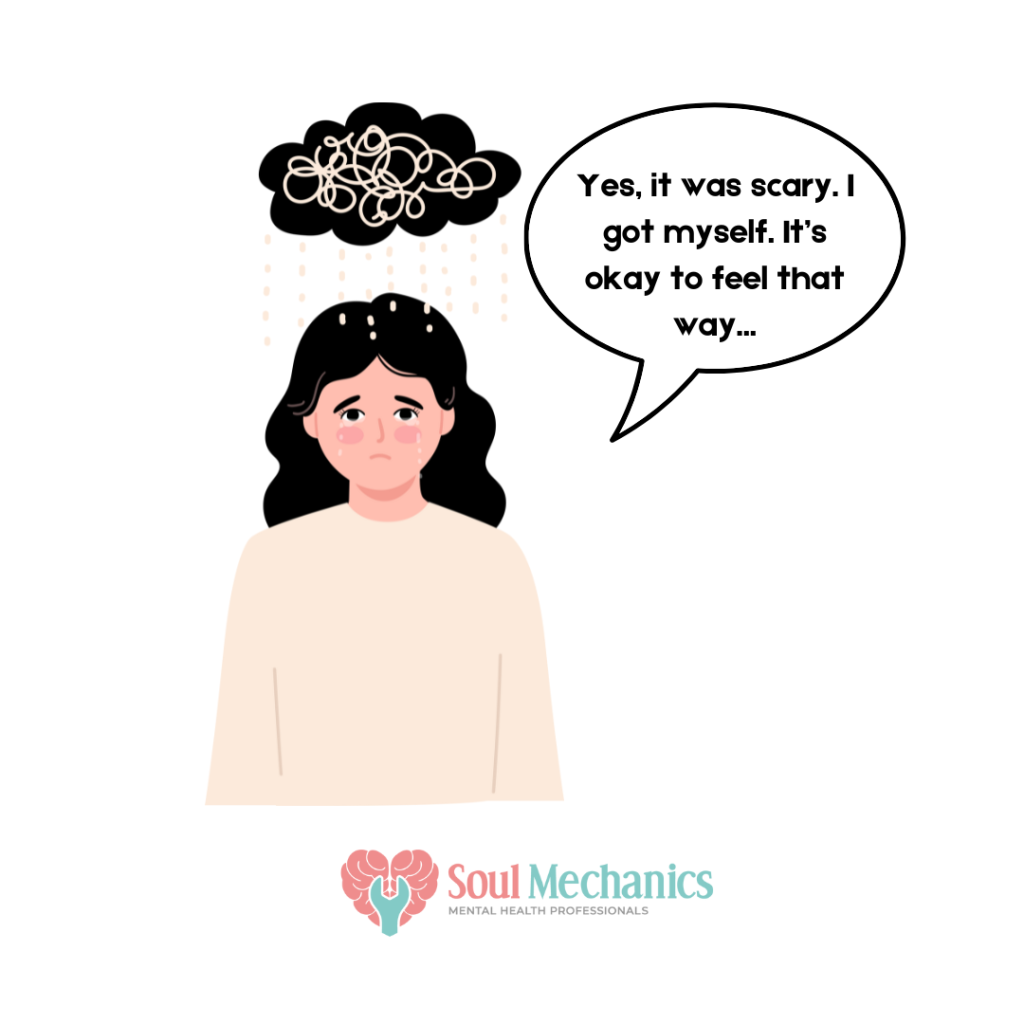
Treat yourself with compassion and kindness as you are working through your feelings of mistrust. Practice simple self-care activities that help you to nurture yourself physically, emotionally, mentally, and spiritually. This includes mindfulness, exercising, meditation, or spending quality time with loved ones.
Reflect on Your Thoughts & Emotions
Utilize your journal as a safe space to understand and process your emotions and thought processes regarding your trauma and its influence on your sense of trust and self. Write or draw freely without any judgement, allowing yourself to openly express whatever comes to your mind without any barriers.
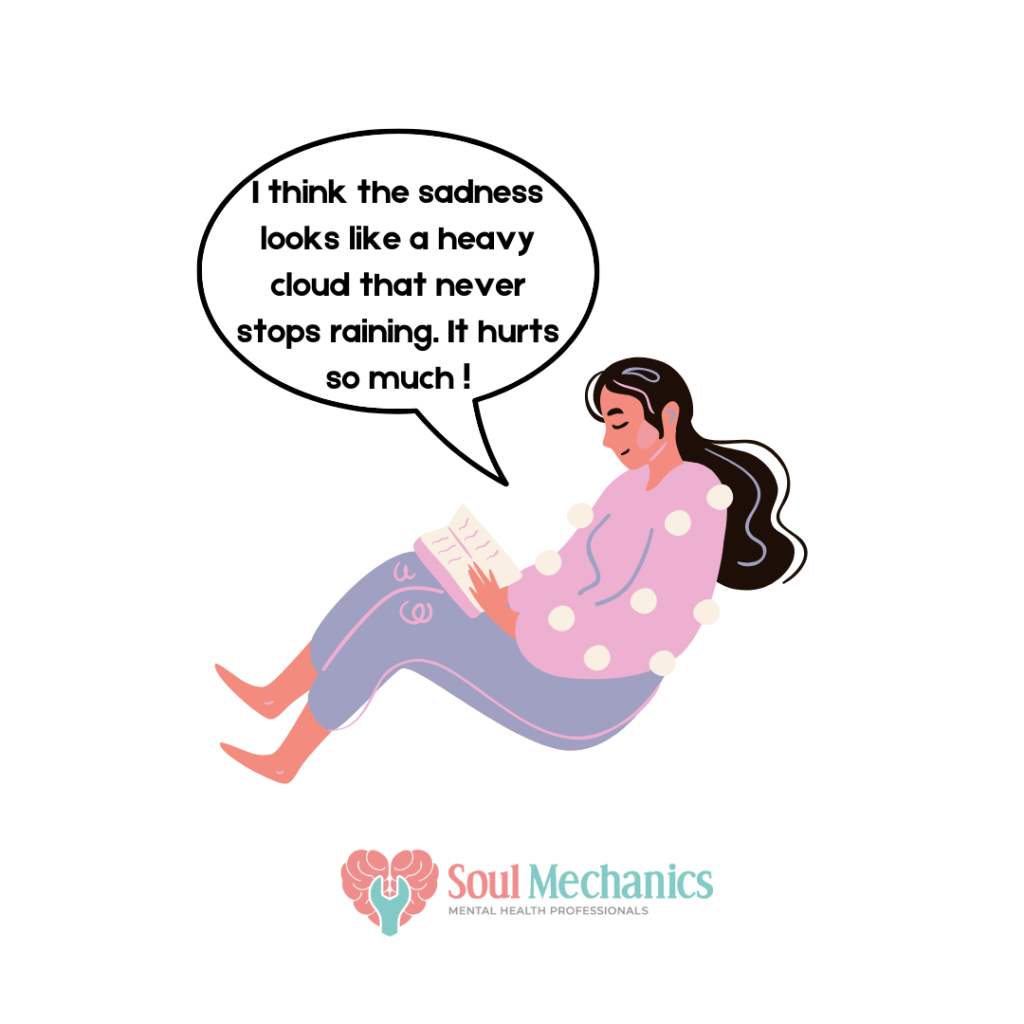
Visualize Your Future
Utilize your journal to visualize the future you want to create for yourself. Pen down or draw the emotions you’re feeling to process them. Then write down your dreams, goals, and hopes, and imagine yourself living a life filled with trust and fulfilment.
Set Realistic Goals

Break down your goals into more manageable ones and start celebrating your small wins and milestones along the way. It is crucial to set more realistic self-expectations and acknowledge that healing takes time. Be patient with yourself as you’re gradually rebuilding your sense of trust in your judgements and abilities.
Practice Assertiveness
Assertiveness involves expressing your emotions, thoughts and needs in a respectful yet assertive manner. Start practising to set boundaries and advocate yourself in various situations to gradually build your sense of confidence in your ability to assert your needs and boundaries.
Surround Yourself with Support
Surround yourself with supportive and understanding loved ones who validate and understand your experience and provide you with reassurance and space to be yourself. Building a strong support network can enhance your sense of safety with others while you’re working through your feelings of mistrust.

Therapy as a Guiding Light
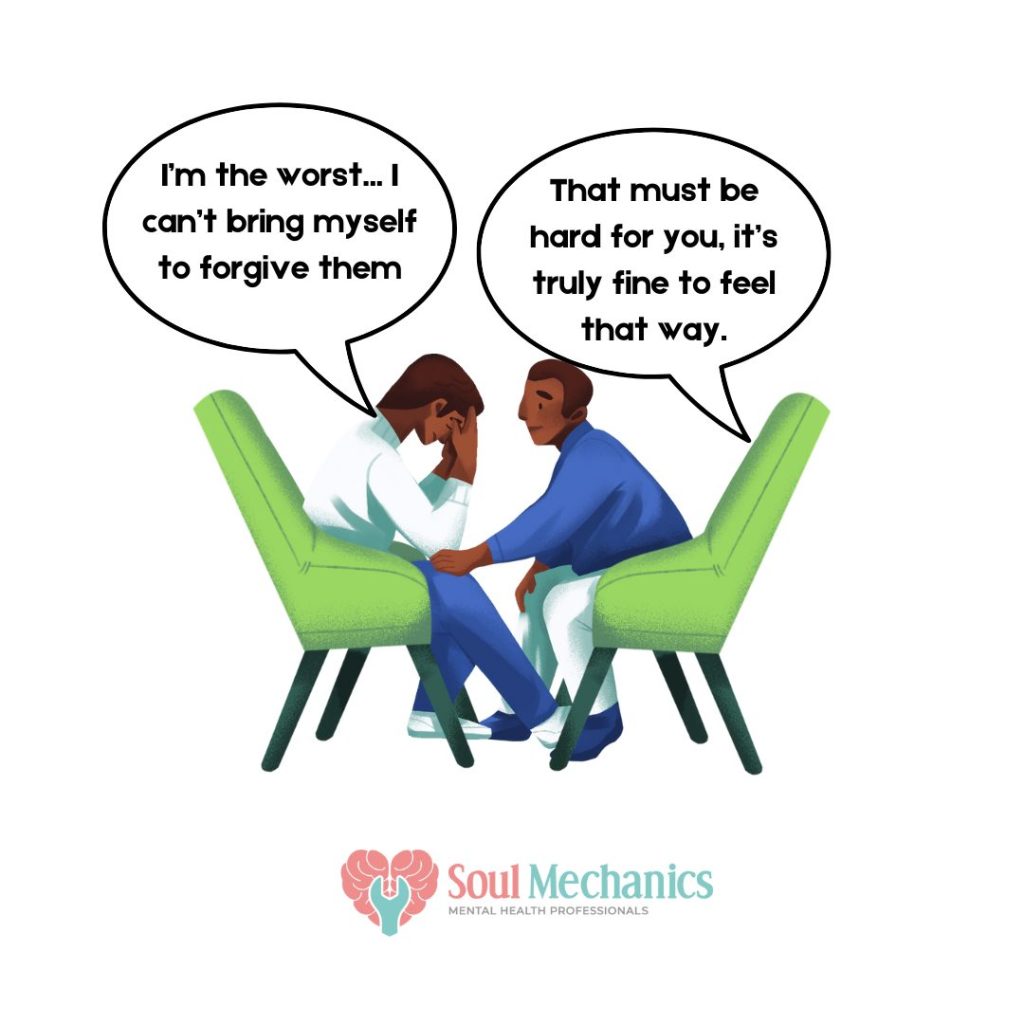
Therapy plays a vital role in helping you rebuild your sense of trust in yourself after going through trauma by providing you with a nurturing and safe space to process your trauma and develop healthier coping. The empathetic nature that a professional therapist provides you with feelings of heard and seen for the pain and underlying that you’re silently battling with. A therapist would also navigate you to address and acknowledge your triggers, trauma’s impact and the other unconscious that you’re experiencing.
Reminder: If you or your loved ones are struggling with mental health issues, please don't hesitate to reach out to us at Soul Mechanics KD or Soul Mechanics Ipoh. Remember, seeking help is not a sign of weakness but strength!
Furthermore, in therapy, you would be guided to gradually develop self-compassion and other coping to regain your control over your life, as trauma most of the time puts you in a depersonalized state. Gradual exposure to trust-building, self-reflections and other healing therapeutic tools, through therapy, you would learn to trust yourself and others; experience yourself to be valued and further enhance your trauma recovery journey.
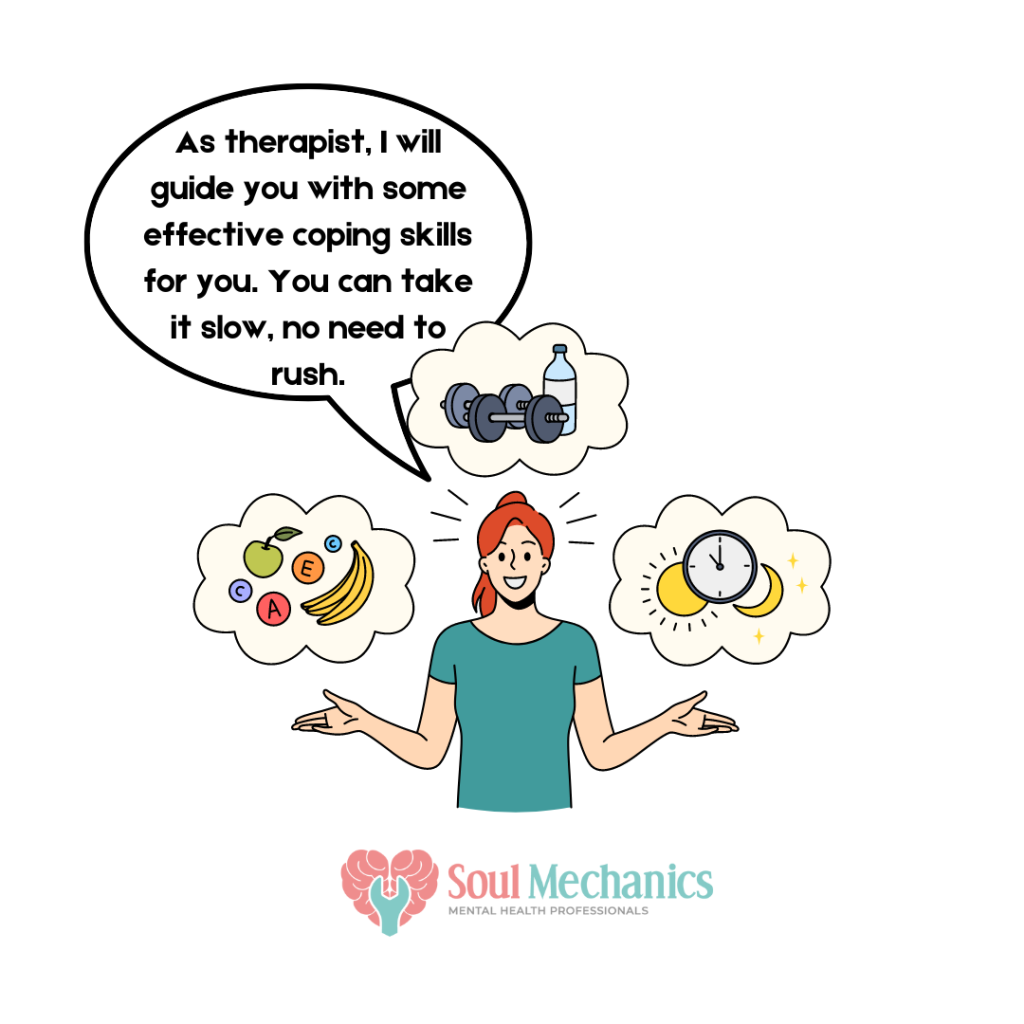
Conclusion
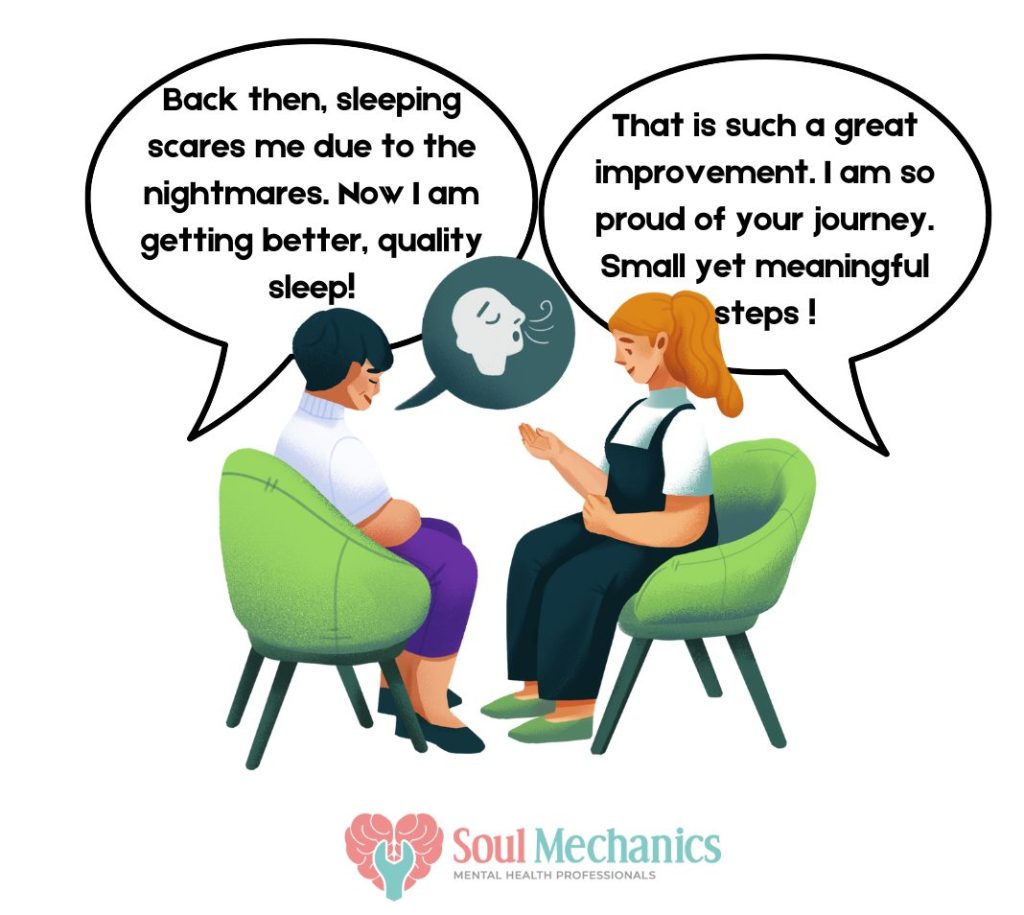
In short, learning to trust yourself again after experiencing trauma can be a challenging yet personal healing journey. It would be more efficient with the right resources and support network. Therapy on the other hand plays a huge role in this healing process by providing you with a nurturing and confidential space to explore the depths of your trauma, process them gradually at your own pace, and develop healthier, personalized coping based on your issues and needs.
If you are someone who is struggling or feeling overwhelmed with the trauma you have experienced, you are not alone in this journey. Take slow steps to heal your trauma. One step at a time. With conscious efforts and patience, you would be able to reclaim your sense of self, and resilience and embrace your life with renewed confidence; fostering your trust in yourself and others.
“One day you would experience colours of life to the fullest through healing”
Shaundtrya Ganasan, Licensed Counselor (KB11097)
If you’re looking for a therapist in Kota Damansara or Ipoh area, you can click here for more information.
If you enjoyed reading this, why not broaden the horizon of knowledge by learning about "Emotional Freedom: The Art of Letting Go"? You can read the blog here.
For more content related to mental health do follow us on our official Instagram.

